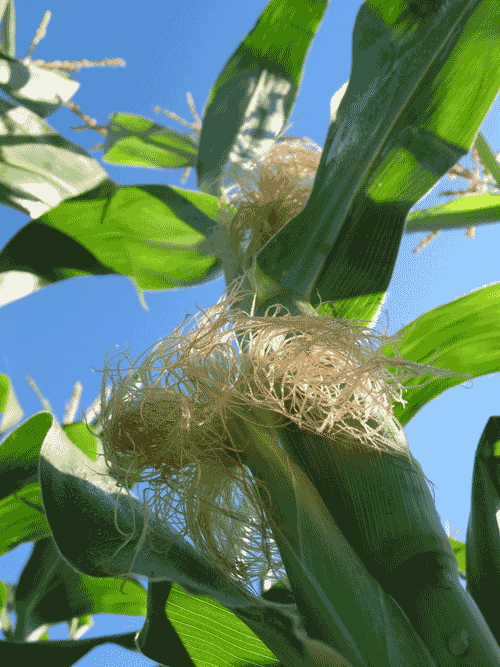Industry outlook
INDUSTRY LEADERS PROVIDE INSIGHT ON UPCOMING CHALLENGES FACING ONTARIO AGRICULTURE
gfo asked agriculture leaders across Ontario what issues and challenges they foresee for farmers in the next two to five years. This knowledge should help us all plan and prepare for the bumps in the road.
This is the final part of the outlook series. In this edition we present opinions from a selection of horticulture, grain and oilseed organizations. Part one of the story ran in the December issue of the magazine and featured insights from the three overarching general farm organizations – Ontario Federation of Agriculture, Christian Farmers Federation of Ontario and the National Farmers Union – along with opinions from a selection of livestock industry leaders. To view the first portion of the story, visit the magazine online at ontariograinfarmer.ca.
 brian gilroy
brian gilroy
Chair, Ontario Fruit and Vegetable Growers’ Association
The opportunity of new crops
Canada’s growing ethnic communities are providing new opportunities for edible horticulture. In the Greater Toronto Area, demand for ethnic vegetables from the Chinese, South Asian and Caribbean communities alone is estimated at $61 million per month. Several new vegetable crops are currently undergoing product trials in Ontario – with the ultimate goal of replacing imported produce with produce grown here at home. There is also opportunity in energy crops – plants grown specifically for their potential to produce energy – and in finding new uses for existing crops, like growing soybeans for the edamame market.
The challenge of local
Canadians are flocking to the local food movement, which is good news for horticulture, where fresh produce often moves through farmers markets, roadside stands and market gardens. However, Canadian fruit and vegetable growers have to compete with growers all around the world on price, so it is critical that our farmers have the support of government to help ensure market access and provide stable, long-term income support when necessary. Without this partnership between growers and government, our fruit and vegetable industry will be a vastly different landscape in only a few short years.
The focus on green social responsibility
Consumers and government are demanding more environmental responsibility from everyone, including the people who grow their food. As farmers, we’ve been focused on environmental stewardship for a long time, through crop rotation, soil conservation and water management, but what will be new is the need to be able to prove it. We’ll need to get used dealing with the need to tell people what we do, why we do it and what their world would be like if we didn’t.
 tom harris
tom harris
Chair, Ontario Coloured Bean Growers’ Association
Ontario coloured beans is a highly specialized industry whose success relies on healthy co-operation between growers, industry and end users. Continuous growth has been based on the ability of producers to adjust and adapt to changing markets and for dealers to create and foster end users’ needs.
Long term research in the area of breeding is a top priority for the association as variety yield increases have been lacking compared to other commodities. As an association with a mandate of research, promotion and education, over 60 percent of yearly license fees are designated towards research.
An immediate area of concern in the short term is the competition for acreage from corn, soybeans and wheat due to the recent increase in these commodity prices. Prices for contracts of coloured beans for 2011 are not favourable at this time and producers are eyeing other commodities. We anticipate 2011 acreage to be reduced, therefore affecting the OCBGA’s overall budget. We will continue to prioritize areas of importance of our producers, namely research. Continuous research in pest management, whether it be weeds or disease also needs our attention as new biological solutions are gaining favourability.
 barry hill
barry hill
President, Ontario Soil and Crop Improvement Association
Given that the mission of the Ontario Soil and Crop Improvement Association is the responsible, economic management of soil, water, air and crops, in my opinion, in the near to medium term, areas of interest we need to focus on are: sustainability, water management and financial viability.
Sustainability
Sustainability is becoming a concern across the industry and we need, within Ontario agriculture, a policy statement and operating principles to support how we manage our farms. Sustainability has many definitions. In Ontario, by general industry consensus, we have used the Environmental Farm Plan (EFP) to define sustainability. Farmers, industry and many government partners have bought the EFP definition big-time! The general population is heavily influenced by definitions provided in the public media – not always practical or feasible. We need to be proactive and utilize our EFP definition (perhaps with a few modifications) to influence and meet the expectations of our customers. If we don’t, one will be imposed upon us.
Water management
Water, it has been said is, as an issue, the next oil. Managing water is perhaps the next big breakthrough in crop production. The impacts of soil organic matter, genetics, drainage and tillage are key components of this discussion.
Financial viability
Finally, financial viability goes beyond the usual discussions of adequate revenue, but should include the farm financial impacts of environmental compliance, provision of environmental benefits to the populace, including wildlife impact and its effect on the financial bottom line.
 grant jones
grant jones
Chair, Ontario Bean Producers’ Marketing Board
Investing in seed
Farmers are always watching their bottom line and cutting costs where they can. Unfortunately, this typically beneficial mentality has resulted in a serious drop in the use of certified seed.
The sale of certified seed is what stimulates seed companies to invest in varieties that meet the needs of Ontario farms. With fewer sales there is less investment and Ontario is poised to lose breeders and see fewer new varieties.
The Canadian Seed Trade Association has proposed a tax credit system which would encourage sales and ensure farmers are compensated for choosing to invest in the best long term option for the province as a whole. I really think this tax credit is a great idea and I see it becoming an important issue in the agricultural industry.
Research funding
Beyond seed development, I’m also concerned that investments in agricultural research as a whole is going to decrease in the public sector resulting in competition among commodities for dwindling dollars.
I think the industry is going to be challenged with functioning in this environment while still maintaining and building a cooperative environment to work within.
Government programs
With our economy still recovering, I think there is a risk that farmers are going to lose access to important farm programs. The ongoing effort to get a permanent risk management program for the industry is going to continue.
Although the pilot has been successfully extended this does not guarantee a permanent program will be put in place.
 don kenny
don kenny
Chair, Grain Farmers of Ontario
It has been a year since the formation of Grain Farmers of Ontario – our province’s largest commodity organization representing 28,000 corn, soybean and wheat farmers.
Our organization is operating in a rapidly changing and often unpredictable environment to bring value to our farmer members through research, marketing, market development, production information and advocacy.
We have said since the discussions began leading to our new strategic plan that today’s operating reality really is “you think you understand the situation, but what you don’t understand is…that the situation has just changed.” This is the place we come from in all of our planning – focus on putting clear goals and values in place but adapt to accomplish our goals as new opportunities and challenges arise.
In the new year, after an almost record grain crop in 2010, GFO will be facing a highly competitive market environment with low cost international competitors competing for markets and investment dollars and an increasing focus on food safety and climate change. Innovation, developing and promoting alternative uses and markets will be critical to the competitiveness of our sector. Active advocacy will also be needed to encourage governments and the private sector to invest in research and market development. Finally, we must communicate the positive contribution farmers make to the public and the communities we are a part of.
The Grain Farmers of Ontario has a strategic plan in place to provide clear direction for our organization. Our mission is to develop and promote an innovative and successful business environment which will allow our farmer members the opportunity for profitable growth. Our vision is to drive the Ontario grain industry to become a global leader. Ultimately, these mission and vision statements will be the test of our success as an organization – that we have been a driver in building global respect and acceptance for the type and quality of the grains we take to all our markets. This is how we will maximize our farmer member’s returns in 2011 and beyond.
jeff kobe
President, Ontario Canola Growers’ Association
Sustainability
Sustainability will be a critical issue for Ontario agriculture over the next decade. For too many years producers have found themselves forced to sell into weak markets that don’t cover their cost of production and then they are forced to mange extended debt loads to keep operating. Yes, 2010 was a great year for grains and oilseeds, but one good year in every ten is not keeping our heads too far above water. Inevitably, following close behind grain price spikes are increased input and production costs. Yet when grain prices fall, as they invariably do, those production costs rarely fall at the same rate. This continual downward slide cannot support a healthy sustainable industry or attract new young producers as many of our farmers reach retirement age.
Government relations
Ontario has a diverse agricultural industry producing a huge variety of products in many agricultural sectors. Historically, when one sector benefits one or more suffer. To help Ontario farmers sustain their farm businesses through the peaks and valleys of agriculture we need a proactive long-term support program that balances the needs of all agricultural sectors and involves the cooperation of both levels of government. Reactive band aid handouts are not the answer.
What producers are asking for are co-operative programs that keep them in business and help Ontario agriculture thrive.
 neil wilson
neil wilson
Chair, Seed Corn Growers of Ontario
I feel there will be many issues facing Ontario farmers over the next five years. I think land prices, land rent, input costs, including fuel, fertilizer and chemicals will continue to rise with the prices of commodities and not follow when commodity prices decline. It will be more and more difficult for young farmers to get started and the average age of farmers will continue to rise. Most young farmers leave the farm because of this, never to return. This means fewer and fewer family farms.
Although this year has been a good year for most of us, with good yields and prices, this does not happen very often. This forces farmer to work off farm, run other businesses or subsidize the farm the best way they can.
Farming becomes more and more challenging and complex every year making it harder to keep up to speed. Farming is a part of you, a way of life and is in your blood. •

















